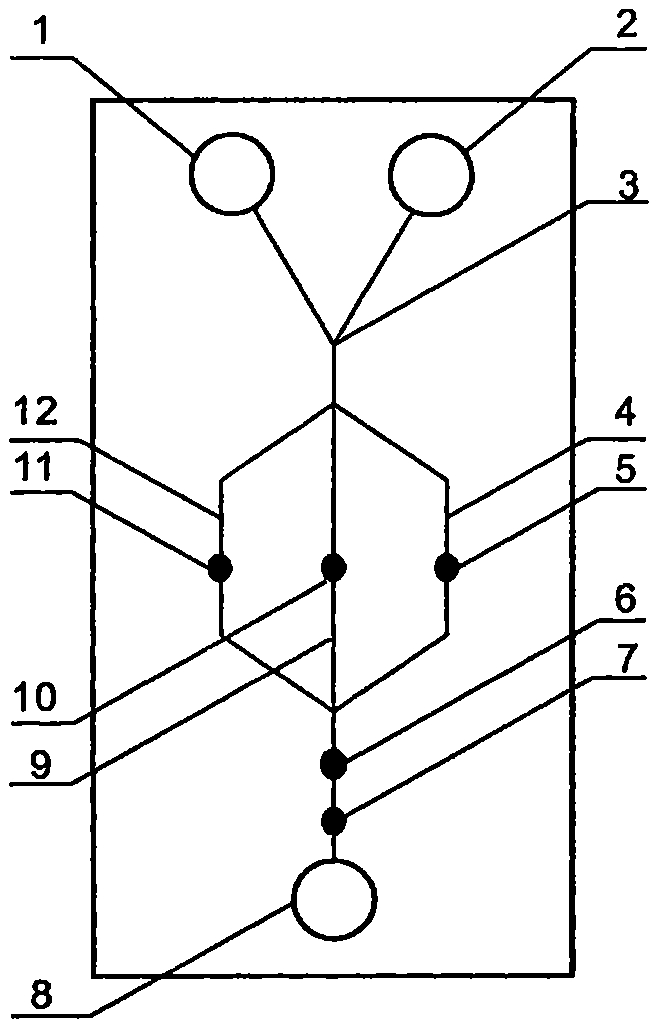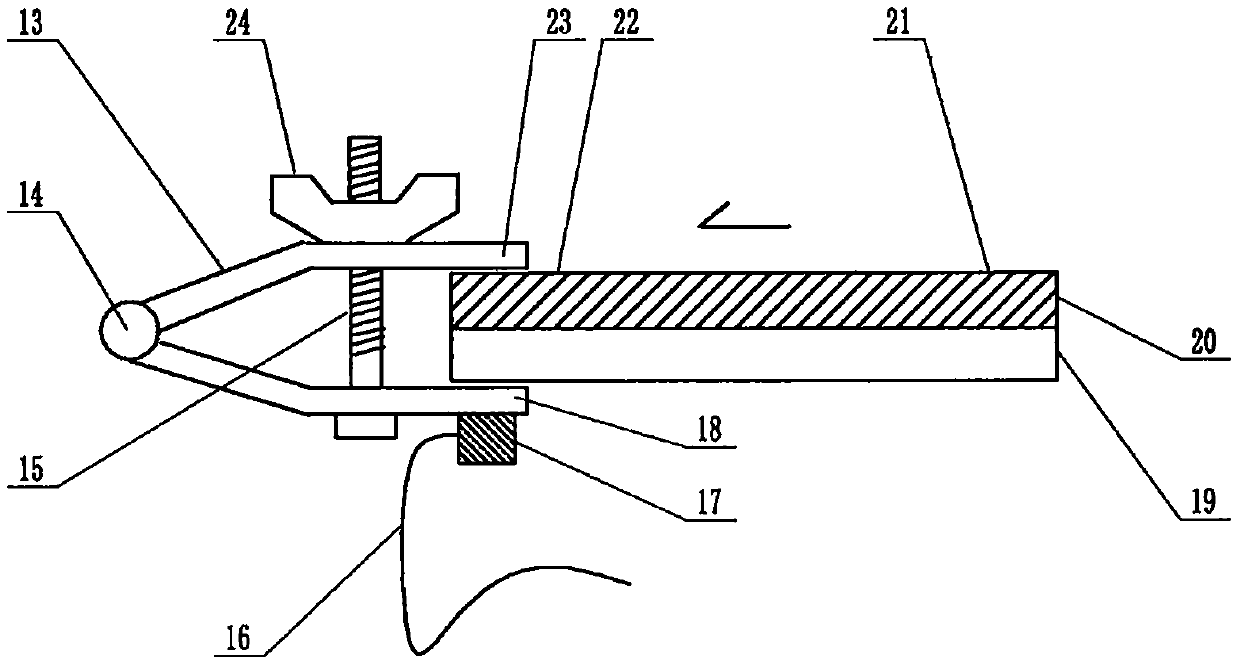Chip apparatus used for detecting subtype swine influenza and using strongly-hydrophobic PDMS as substrate material
A swine flu and microfluidic chip technology, applied in the field of analysis and testing, can solve the problems of large flow resistance, troublesome modification of the inner surface of the PDMS channel, and has not been properly solved.
- Summary
- Abstract
- Description
- Claims
- Application Information
AI Technical Summary
Problems solved by technology
Method used
Image
Examples
Embodiment Construction
[0075] exist figure 1 and figure 2 In this embodiment of the present case shown, the structure of the device includes a multi-channel microfluidic chip, and the structure of the microfluidic chip includes a substrate 20 and a cover 19 that are attached and installed together. The substrate 20 The cover sheet 19 and the cover sheet 19 are both plates or sheets, the side of the substrate 20 facing the cover sheet 19 contains a channel structure formed by a molding process or an etching process, and the substrate 20 also contains the groove structure. The channel structure is connected and the window structure formed by the molding process, the etching process or the simple drilling process is formed through the substrate 20. The substrate 20 and the cover sheet 19, which are attached to each other and installed together, form a structure containing the channel. and the microfluidic chip of the liquid pool structure connected to it, the structural position of the pipeline is lo...
PUM
| Property | Measurement | Unit |
|---|---|---|
| particle diameter | aaaaa | aaaaa |
| diameter | aaaaa | aaaaa |
| length | aaaaa | aaaaa |
Abstract
Description
Claims
Application Information
 Login to View More
Login to View More - R&D
- Intellectual Property
- Life Sciences
- Materials
- Tech Scout
- Unparalleled Data Quality
- Higher Quality Content
- 60% Fewer Hallucinations
Browse by: Latest US Patents, China's latest patents, Technical Efficacy Thesaurus, Application Domain, Technology Topic, Popular Technical Reports.
© 2025 PatSnap. All rights reserved.Legal|Privacy policy|Modern Slavery Act Transparency Statement|Sitemap|About US| Contact US: help@patsnap.com


